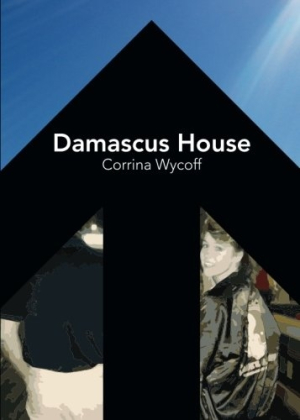Damascus House
Though it shows the disturbing sides of fundamentalism, this novel also compassionately portrays evangelical Christian life.
A rare, earnest portrayal of evangelical, fundamentalist Christians—who speak in tongues, cast out demons, and condemn sex before marriage—Corrina Wycoff’s Damascus House provides an astounding, crisp, and un-ironic portrait of one religious community’s unraveling.
Riverview, New Jersey, is a former farm community of the 1990s, now overrun with prefabricated houses and strip malls. Amy Rotolo, the “ever-prodigal daughter” of Vic and Linda, flies home from Oregon to announce to her family that she’s finished with them: she’s a lesbian now; she has a loving partner; she’s happy. This announcement shakes the community. Pastor Lou gathers everyone together for “food and intercession.”
Amy’s best childhood friend, twenty-six-year-old Rachel, feels loyal to Amy and contrives a lie to distract everyone: when she was sixteen, Rachel had an abortion. After much prayer and consideration, Rachel’s newlywed husband, Alan, and Pastor Bianchi ship Rachel off to the Damascus House, a month-long ministry for women who’ve had abortions. When she arrives at the house, among “Indiana farms and flat brown grasses,” she’s forced to wear a jumpsuit and attend repentance services and group treatment. She’ll be welcomed back into the fold if and when she can “pledge compliance.”
Damascus House is a frightening iteration of cult mentalities. While girls fall “slain in the spirit” and the leader of the house shouts, “Vengeance is Mine, Sayeth the Lord!,” two images flash on a screen behind him—the first being an aborted fetus, and the second an image of the crucifixion. Still, the text manages to offer a compassionate portrayal of the often hysterical fanatics at its core, including Alan, who quotes Leviticus and can “discern spirits”; Linda, an apocalypse-obsessed, overbearing mother; and Lee, the orphaned outsider and young mother brimming with anger.
Damascus House is a knockout as a late-blooming bildungsroman, which follows one young woman’s desire to return to an innocence she’s never known, and to find a sober mind and a genuine faith that she can call her own.
Reviewed by
Josh Cook
Disclosure: This article is not an endorsement, but a review. The publisher of this book provided free copies of the book to have their book reviewed by a professional reviewer. No fee was paid by the publisher for this review. Foreword Reviews only recommends books that we love. Foreword Magazine, Inc. is disclosing this in accordance with the Federal Trade Commission’s 16 CFR, Part 255.

